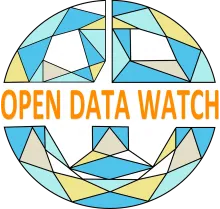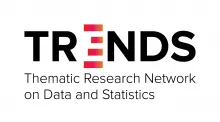We know data is valuable. It must be. Governments pay hackers millions of dollars to get it. Five of the top six companies in the world by market valuation are data companies. Companies that have figured out the true value of data are making money hand over fist.
So why is the development sector lagging behind? Shouldn’t governments and donors be investing in the data production, analysis, and technology that would allow them to target interventions as effectively as Google targets advertising?
In the development sphere where local, national, and global efforts are coalescing around achievement of the Sustainable Development Goals (SDGs), one might assume that policymakers would value data as highly as their counterparts in business. After all, the SDGs are a time-bound measurable framework of 17 goals, 169 targets and 232 indicators that all countries are aiming to achieve by 2030, and they need to measure their progress. True, there is a strong rhetorical consensus that better data are a prerequisite to achieving the SDGs and leaving no one behind. But the demand for better data has not translated into a corresponding growth in funding from domestic or external sources. In other words, the level of investment does not match the professed value of data.
At least one reason for this is that data and statistics are often viewed as long-term process and systems investments, competing with priorities that are viewed as having a more immediate impact. This speaks to politicians’ and policymakers’ short time horizons and impatience to see some results, even when it may not lead to systemic change. It also suggests that policymakers do not know how to assess data’s value relative to other investment priorities.
To confront this challenge, we wanted to better understand how economists and researchers have attempted to measure the value of data.
Our paper, What Do We Know About the Value of Data?, unpacks five methods for measuring the value of data. It aims to understand each method’s benefits and drawbacks, and to determine which approaches would be most effective to convince policymakers of the need to increase investments in data. This analysis builds on Open Data Watch’s recently published Value of Data Inventory. The approaches reviewed in this paper were:
- Cost-based approaches – Value is determined based on the cost to produce the data.
- Market-based approaches – Value is determined based on the market price of equivalent products or users’ willingness to pay.
- Income-based approaches – Value is defined by estimating the future cash flows that can be derived from the data.
- Benefit monetization approaches – Value is estimated by defining the benefits of particular data products, such as a census, and then monetizing the benefits.
- Impact-based approaches – Value is determined by assessing the causal effect of data availability on economic and social outcomes, or the costs in terms of inefficiencies or poor policy decisions due to limited or poor-quality data.
After reviewing each of these approaches, the paper found that: 1) measuring the value of data is really difficult and there is no consensus on how best to do it; and 2) none of the methods are sufficient to influence policymakers.
Why is valuing data so difficult? These methods all start from the assumption that data are an intangible asset. Data are also, in large part, public goods and therefore do not have a market price. Data are non-rival meaning one person’s use does not take away from others’ ability to use it or diminish its value. This means it can be difficult to track and measure the value to different users over time and for different purposes. These features make it particularly difficult to pinpoint value and to monetize the benefits of data products.
What is the way forward? Of the approaches reviewed, we found the impact-based approaches, which show the strong role of storytelling in promoting value, to be the most promising because they demonstrate the relationship between data investments and outcomes that affect people’s lives. Their greatest challenge is the context-specificity of some cases, which could limit their influence with policymakers. But, if it’s possible to show both the human impact and the return on investment, we may have a winning combination.
Going forward, the Global Partnership for Sustainable Development Data will support efforts to compile stories of data impact that make a clear link to return on investment. We will build on the work of our partners and encourage anyone to contact us with stories they would like to share. We will package these stories and use them in our advocacy as we make the case for more and better financing for data.
(Photo by Arne Hoel / World Bank)








